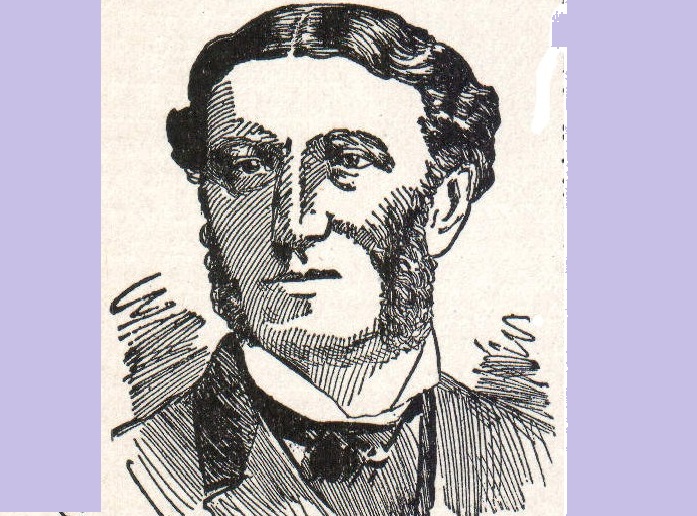Matthew Arnold Poems reflect the picture of the Victorian Age. It is Matthew Arnold who has a very high conception of poetry, is known as a poet of the Victorian age. According to himself “Poetry is the criticism of life”. By the phrase “criticism of life” he wants to focus a noble and profound application of ideas of life. It means that poetry is not for affording pleasure and creating beauty, it must have a high ideal. Arnold could not rejoice at the material prosperity and industrial expansion of his time of Victorian age. So reasonably Arnold’s poetry becomes at bottom a criticism of life.

To Arnold, it is only poetry of the best kind that can and will fulfill the important role of forming sustaining and delighting mankind. In this point of view, Arnold’s statement is noteworthy. He says in the following ways:
“Poetry is the criticism of life under the conditions fixed for such a criticism by the laws of poetic truth and poetic beauty.
Matthew Arnold Poems offer a criticism of the Victorian age which was concerned with materialism. His poems critically represent the growing craze of the Victorian people for power pelf, riches and wealth. The Victorian people are wavering between doubt and faith, instability and stability of their long patronizing customs and values. At that very time, Arnold seeks faith and stability earnestly. So we notice in Arnold’s poetry that the search for faith and stability is a dominant note.
In the poem “The Scholar Gipsy”, he present a criticism of the contemporary world for the strong disease of modern life. The poet models his poem on a pastoral elegy. In a pastoral elegy, the poet imagines one shepherd who expresses his grief to another shepherd. But that shepherd does not mourn the death of his companion. He laments the loss of noble ideals in life.
He addresses a fellow shepherd who tends his sheep in the Oxford Countryside. He asks the shepherd to join him in the very evening after completing the day’s work. Then sitting on the soft grass he will tell the shepherd about the story of a scholar gypsy. The scholar was ice a student of Oxford. He had talent and creative powers. He wanted to cultivate his power for noble purpose. But he did not get the scope. So he left Oxford and never returned. Once two students of his colleagues found him in a lane. He told them that he had joined a group of gypsies. The gypsies knew the art of knowing how to brain of other men worked.
The poet speaks highly of the age in which the scholar lived. At that time men’s wits were fresh and clear. Arnold through the speech of scholar Gipsy tells that a man may die but his ideal continues to live. He says in the following ways:
“Thou hast not lived, why shouldst thou perish so?
Thou hadst one aim, one business, one desire”
The poet urges the Scholar Gypsy who died before 200 years ago to keep away from the modern world of human beings because any content with them and their mental strife will disturb the tranquility. The poet says this in the following:
“Before this strong discuss of modern life
With its sick hurry, it’s divided aims
Its heads overtaxed its palsied hearts”
Table of Contents
Matthew Arnold Dover Beach Poem
Matthew Arnold Dover Beach Poem shows us a note of sadness. He compares men to an ignorant army clashing in a darkling plain. Having lost faith man’s life on earth is enveloped in the darkness of despair and skepticism and lost in the gloom without knowing its meaning. He says in this poem:
“And we are here as on a darkling plain
Swept with confused alarms of struggle and flight
Where ignorant armies clashed by night”
This poem records the loss of Victorian age. The Man had honest religious firmness in the day past. But not religious firmness in the day past. But not religious faith has disappeared and skepticism has stepped. Thus Arnold’s poetry gives criticism of life about his own age as well as universal appeal.
“Thyrsis” is another notable poem from Matthew Arnold Poems. It offers us criticism of life. In this poem, the poet mourns for the death of his friend Arthur Clough who failed to cope with this world due to some religious controversies. The death of his friend reminds the poet of his own death. He thinks that his death is also drawing near. In his youth, he hoped the path of truth is very near and short but now it appears very long and tedious. He says that the light of wisdom can not be attained by gold, prosperity or a flattering group of friends. In this way, he criticizes himself and these Victorian people.
In other poems of Arnold, his despair at the lack of spiritual ideal is expressed. But in these poems, his views are clear consistent and clear. Arnold has praised his friend and the Scholar Gypsy because they remained away from the strifes and struggles of life. It means a tendency towards escapism. Escapist mentality does not show a man’s courage and heroism.
Finally, we can say that though Arnold has some limitations, he is very much critical about the life of the Victorian Age. His specialty in writing poetry is not only for giving pleasure but also it is a criticism of life and this specialty proves.
Read More Literary Writings
Matthew Arnold Poems as the Criticism of Life or Victorian Age
Tennyson as a representative poet of his age or Victorian Period
Treatment of Nature in the poem of Tennyson
Michael by William Wordsworth as a tragedy of human life
Somebody Once Told Me The World Was Macaroni Lyrics
The Love Song of J. Alfred Prufrock represents conflict of modern man


